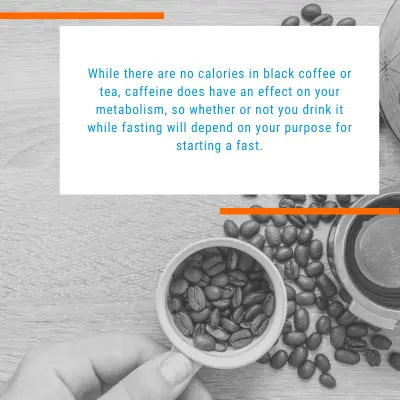Everyone is talking about the incredible health benefits of fasting, but few people are making the distinction between dry fasting vs water fasting. There is a big difference and understanding both the benefits and the risks of each can help you make sure that you start out with the right type of fast for the results you want.
What is Dry Fasting
Dry fasting, also known as absolute fasting, completely restricts the consumption of both liquids and foods. This means that not only can you not eat, you also can’t drink coffee, tea, broth, or even water during a dry fast. This is a much stricter form of fasting, but it can still be practiced safely and relatively easily in a few different ways:
- Intermittent fasting, or time-restricted eating, constrains your eating to an 8 – 12 hour window each day, giving your body a full 12 hours of fasting at least each day
- Eat-stop-eat, which involves fasting for 24 hours once or twice a week
- Periodic fasting, where you stop eating and drinking for a set number of days, for instance, a 3-day fast twice a year
- Alternate day fasting, which is done every other day, is possible but probably a little extreme for dry fasting
Benefits of Going Dry
Any type of fasting will have health benefits, namely reducing risk factors associated with aging, but dry fasting specifically has a few unique benefits.
Dry fasting puts more stress on your body than water fasting does, creating a more significant biological response to recycle resources that have been stored previously. You can live without food for a considerable length of time, but your body will start to demand water in less than 12 hours. It will search for it wherever it can find it, and it will put every cell in your body to work to find essential resources. This work takes energy, so you will be burning fat. Of course, some of the weight you lose will be water weight, but research shows that dry fasting does effectively reduce overall body mass.
Researchers also suggest that dry fasting improves the immune system in the body. This is because, through a process called autophagy, it begins to eliminate damaged cells in order to create new ones. Autophagy is triggered by stress, and a dry fast is a healthy way to place the right kind of stress on your body. In addition to this, dry fasting is very effective at reducing inflammation, a constant source of damage to your immune system.
Potential Dangers of Dry Fasting
Despite the above benefits and many more, dry fasting can be dangerous if you’re not careful. Dehydration is a considerable risk factor that can lead to other acute complications. If you’re interested in doing an extended dry fast, it should be with supervision to make sure you’re safe throughout.
The most extreme type of dry fasting, a hard dry fast, even restricts you from showering and brushing your teeth. You should have no contact with water at all. With a soft dry fast, at least your body has the opportunity to replenish some of its moisture through the skin.
Some people prefer intensity, but before you can make an educated decision between dry fasting vs water fasting, it’s important to consider the benefits of adding some liquid to your fast.
What is Water Fasting
As you may guess, water fasting is a type of fasting that allows you to drink water while restricting the intake of any and all calories. A strict water fast limits you to still water only, however, many people who fast under the title of water fasting also drink beverages that are calorie-free, such as black coffee or tea, or sparkling water.
While there are no calories in these drinks, caffeine does have an effect on your metabolism, so whether or not you drink it while fasting will depend on your purpose for starting a fast.
There are also certain cleanses that have gained popularity, claiming to help you lose weight fast and detox your liver and other organs. While the research remains unclear on the effectiveness of these efforts, lemon detox cleanses encourage you to drink nothing but a mixture of lemon, maple syrup, cayenne pepper and water for up to a full week. For any fast that long, whether it cleanses your body or not, you should prepare your body safely first and make sure you have supervision.

Benefits of Drinking Water
Similar to dry fasting, water fasting may promote autophagy if the fast is long enough. This process is your body’s natural defense against internal waste build-up and it has been shown to reduce the risks of certain diseases like cancer, heart disease, and Alzheimer’s disease. Without all these diseases that are plaguing our lives in the 21st century, we can look forward to our ever-lengthening lifespans with the hopes of being healthy in our old age as well.
Studies have shown that prolonged water fasting can lower blood pressure, improve overall immune system function, and improve the sensitivity of hormones like insulin and leptin in the body. By repairing our hormone balance, we will be better prepared to prevent obesity (a function of leptin), and obesity-related diseases by reducing blood sugar levels (a function of insulin).
Potential Dangers of Water Fasting
Despite water fasting being recommended for many various health benefits, it may have its dangers as well. Most risks will only occur if you decide to jump into a prolonged fast without preparing your body, in which case, you may experience dangerous fluctuations with your blood sugar levels or a condition called orthostatic hypertension. This is a drop in blood pressure that might happen when you stand up suddenly, leaving you feel slightly dizzy, lightheaded and, in extreme cases, might lead to fainting.
If you’re interested in trying fasting in your own life, it’s important that you do it safely. Working with a fasting coach like myself can help you prepare your body using short, intermittent fasts, so that it’s accustomed to operating more efficiently. If you are desperate to start with a prolonged fast it’s very important that you work with a trained medical professional and are supervised or monitored throughout to ensure your safety.
Reasons for Fasting Beyond Health
Most people who are fasting for the first time as an adult are doing so for health reasons, whether its to repair a condition they are suffering with, to lose weight, or simply to prevent health issues in their future. However, many people also fast for religious reasons. Almost all major religions of the world have incorporated fasting into their practices, whether it’s one day a week or up to 40 days of the year.
Whatever your personal reasons for fasting may be, there are many different types and lengths of fast that you might want to consider before deciding what is right for you, beyond dry fasting vs water fasting. Our related post, Types of Fasting, details some of the most popular types of fasting and it is a good follow up read to this post, so I hope you’ll enjoy it!
Case Studies and Research
Effect of fasting in Ramadan on body composition and nutritional intake: a prospective study



